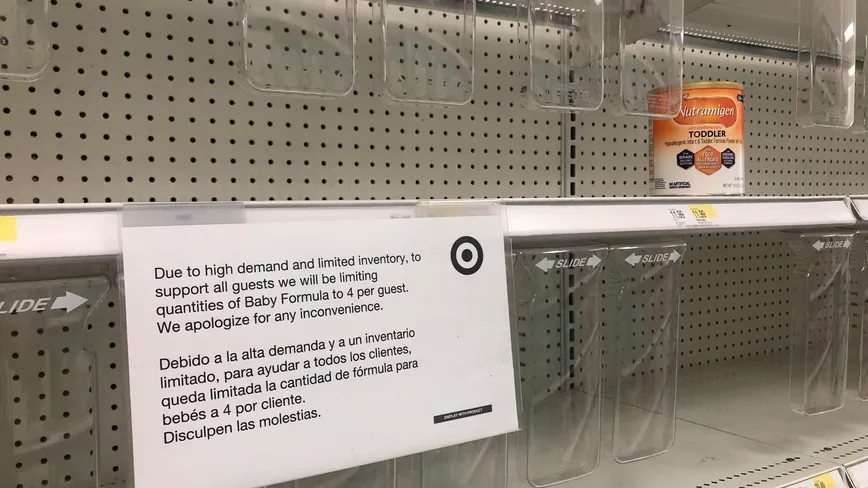Baby formula shortage in the U.S.
Shelves that are usually filled with baby formulas are now bare.
May 24, 2022
Since the outbreak of COVID-19 which happened back in March of 2020, there have been significant shortages of baby formulas in stores nationwide. Current shortages that have happened recently have been because of supply chain issues and the recent recall of several baby formula products (cow milk based formulas such as Similac Advance and specialty formulas for allergic babies: Elecare and Similac Alimentum) over concerns about contaminants. The FDA has also shut down Abbott Nutrition’s Farm in Michigan which is one of the largest producers of baby formula. The closure was due to an investigation of bacterial infection that could have been the result of the death of two infants in connection to powdered formula. The shortage of baby formula has been televised by mainstream media which has made families worried which has led to panic buying and hoarding of baby formula products.
This shortage has no doubt affected some parents more than others. The most affected parents are those who receive a lower income than others. The WIC has provided formula for a majority of babies in low-income families, but costs have gone up for it and formula has now become scarce. Another thing to note is that the formula shortage is affecting both regular infant formula and specialized versions as well. Before the Michigan factory closed, it made most of the specialized formula in the U.S. so there’s now a scarcity of specialized formula for babies with allergies.
The shortage also means that babies are at risk for not getting enough nutrition that they need to help them develop. This can lead to many health problems such as physical growth and brain development. There are alternatives to this problem, babies over the age of six months for only short periods of time can be fed whole cow milk and iron supplements. The only problem is that cow milk doesn’t have the right protein blend for infants and it has an imbalance of minerals.
Overall, the shortage has impacted many families, especially low income families in the US. President Joe Biden invoked emergency powers with the Defense Production Act to get baby formula back on shelves as soon as possible. The FDA is also easing barriers for foreign formula products entering the U.S. and working with other manufacturers to increase production.


